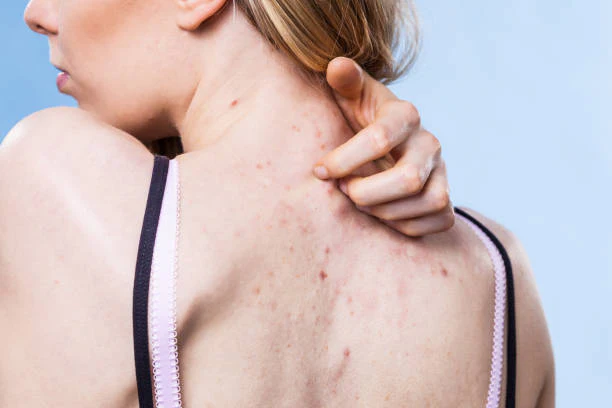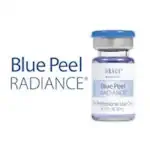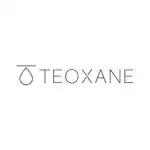Understanding the underlying factors influencing skin health is paramount. One such influential factor that often flies under the radar is hormones. Yes, those tiny chemical messengers coursing through our bodies play a significant role in the health and appearance of our skin. At Verve Medical Aesthetics, we pride ourselves on our expertise in skincare and offer a range of treatments to address various skin concerns. Led by Dr. Mark McCoubrey, our team is dedicated to helping you achieve healthy, radiant skin. Let's delve deeper into the fascinating relationship between hormones and skin health.
How can hormones affect the skin?
Hormones are powerful substances produced by various glands in the body, including the adrenal glands, thyroid, and reproductive organs. They regulate numerous bodily functions, from metabolism and growth to mood and reproduction. However, their impact extends beyond internal processes to influence the health and appearance of our skin.
One of the most well-known hormones affecting the skin is estrogen. This hormone plays a crucial role in maintaining skin hydration, elasticity, and thickness. During puberty, estrogen levels surge, contributing to the development of plump, youthful skin. However, as estrogen levels fluctuate throughout the menstrual cycle, pregnancy, and menopause, women may experience changes in their skin, such as acne flare-ups, dryness, or decreased collagen production.
Testosterone, primarily known as a male hormone, also plays a role in skin health. While women produce smaller amounts of testosterone, it still influences sebum production, which can contribute to oily skin and acne. Conditions such as polycystic ovary syndrome (PCOS) can lead to hormonal imbalances, resulting in excess testosterone and skin issues like acne, hirsutism (excessive hair growth), and thinning scalp hair.
Furthermore, cortisol, often referred to as the stress hormone, can wreak havoc on the skin when chronically elevated. Stress triggers the release of cortisol, which can disrupt the skin's barrier function, leading to increased sensitivity, inflammation, and accelerated ageing. Conditions like eczema and psoriasis may worsen with heightened stress levels, highlighting the profound impact of hormones on skin conditions.
Understanding the interplay between hormones and skin health is crucial for effective skincare treatments. At Verve Medical Aesthetics, we offer personalized solutions to address a myriad of skin concerns exacerbated by hormonal imbalances. From tailored skincare routines to advanced treatments, we strive to restore your skin's natural balance and vitality.
Dr. Mark McCoubrey, our lead practitioner, not only specialises in medical aesthetics but also provides a private GP service. With his expertise and comprehensive approach to healthcare, you can trust that your skin and overall well-being are in capable hands.
Progesterone, another key female hormone, influences various aspects of skin physiology. It can affect sebum production, collagen synthesis, and even skin pigmentation. During the menstrual cycle, progesterone levels rise in the second half, potentially leading to increased oiliness and breakouts in some individuals.
Moreover, thyroid hormones play a crucial role in regulating the skin's metabolism and turnover rate. Hypothyroidism, characterised by low thyroid hormone levels, can manifest in dry, rough skin, while hyperthyroidism, marked by excessive thyroid hormone production, may cause warm, moist skin and increased sweating.
In addition to natural hormonal changes, external factors such as diet, lifestyle, and environmental stressors can also impact hormone levels and consequently, skin health. For instance, a diet high in sugar and processed foods can lead to insulin spikes, triggering inflammation and exacerbating conditions like acne. Similarly, exposure to environmental toxins and pollutants can disrupt endocrine function, contributing to hormonal imbalances and skin issues.
So, what can you do to support your skin in the face of hormonal fluctuations? Here are some tips:
-
Maintain a Balanced Diet: Focus on whole, nutrient-rich foods like fruits, vegetables, lean proteins, and healthy fats. Incorporate foods rich in antioxidants, omega-3 fatty acids, and vitamins A, C, and E to support skin health and reduce inflammation.
-
Manage Stress: Incorporate stress-reduction techniques such as meditation, deep breathing exercises, yoga, or regular physical activity into your routine. Prioritise self-care activities that promote relaxation and mental well-being.
-
Practice Consistent Skincare: Develop a tailored skincare routine that addresses your skin type and concerns. Cleanse gently, use non-comedogenic products, and incorporate ingredients like retinoids and hyaluronic acid to promote skin renewal and hydration.
-
Get Quality Sleep: Aim for 7-9 hours of quality sleep each night to allow your body to repair and regenerate. Establish a relaxing bedtime routine and create a conducive sleep environment free from distractions.
-
Seek Professional Guidance: Consult with a qualified healthcare provider or skincare specialist to assess your unique skin concerns and develop a personalised treatment plan. Consider treatments such as hormone therapy, topical medications, or professional procedures tailored to your needs.
At Verve Medical Aesthetics, we're committed to providing comprehensive skincare solutions tailored to your individual needs and preferences. Whether you're struggling with hormonal acne, premature ageing, or other skin concerns, our experienced team led by Dr. Mark McCoubrey is here to support you on your journey to healthy, radiant skin.
Don't let hormonal fluctuations dictate the state of your skin. Take proactive steps to nourish and protect your skin from the inside out, and remember that you're not alone in your skincare journey.
















